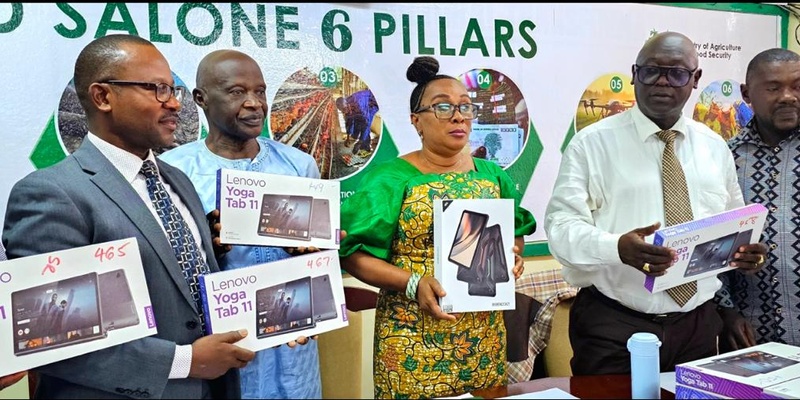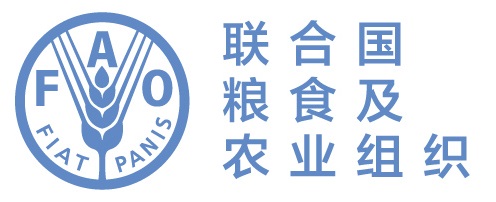IPPC向塞拉利昂捐赠平板电脑,以加强其有害生物监测和农业抗灾能力
Posted on Mon, 17 Feb 2025, 07:07

©(从左至右)联合国粮农组织驻塞拉利昂代表Saeed Abubakar Bancie、塞拉利昂农业与粮食安全部第一副部长Sahr Hemore和第二副部长Theresa Tenneh Dick、塞拉利昂农业与粮食安全部高级常任秘书Prince A. Cole以及Alie H.D.
弗里敦,2025年2月5日。国际植物保护公约(下称“IPPC”)秘书处向塞拉利昂农业与粮食安全部捐赠了40台平板电脑,以加强该国的有害生物监测能力,并促使其制定有效的虫灾防控策略。植物病虫害是塞拉利昂农业生产和生产力面临的主要瓶颈问题。要有效管理上述问题,保护该国的农业和贸易,就必须配备充足的植检人员,并为其配备足够的设备。
这些平板电脑配备了专门定制的地理空间应用程序,将使各国家植物保护组织(下称“NPPO”)的工作人员利用先进的数字技术,对有害生物进行监测、分析和报告,从而作出基于证据的决策,并制定最合适的虫灾防控措施。
这些平板电脑通过IPPC“非洲植物检疫计划”(下称“APP计划”)捐赠,由美国农业部动植物卫生检验署(APHIS)出资。IPPC秘书处已在“APP计划”框架下向每个计划试点国家捐赠了至少45台平板电脑。这些国家包括喀麦隆、刚果民主共和国、埃及、几内亚比绍、肯尼亚、马里、摩洛哥、塞拉利昂、乌干达、赞比亚和津巴布韦。
在此基础上,IPPC还制定了针对重点有害生物的“APP计划”调查协议,以指导NPPO工作人员对有害生物进行识别。与此同时,IPPC还开发了一个集中式门户——IPPC网站“APP计划”地理信息系统(GIS)中心页面,用以存储数据。此外,IPPC秘书处还提供培训和技术支持。
粮农组织驻塞拉利昂办事处“APP计划”联络人Sahr Beinya以IPPC秘书处日常事务负责人Sarah Brunel的名义代为致辞。她指出:“有了可靠的数据,各国就可以通过加大从无虫害地区进口商品来扩大农业市场准入,并确保国际植物检疫措施标准得到进一步遵守。”她鼓励NPPO工作人员参加IPPC的免费在线学习课程,以提高自身在有害生物监测和国家报告义务方面的知识。
联合国粮农组织驻塞拉利昂代表Saeed Abubakar Bancie代表IPPC向该国移交了平板电脑。他表示:“农业是非洲经济的基石,为数百万人口提供生计,并对经济增长做出重要贡献……而植物有害生物却对其构成了严重威胁,每年造成高达655亿美元的经济损失。”他强调了“APP计划”等倡议在增强非洲植物健康能力和抗灾能力方面的重要性,并鼓励加强国家层面、区域层面和国际层面的合作。
塞拉利昂农业与粮食安全部副部长Theresa Tenneh Dick代表该国植检单位(塞拉利昂NPPO)接收了平板电脑。她表示,此次捐赠恰逢其时,将支持NPPO工作人员提供可靠的有害生物状态和早期预警数据,从而支持塞拉利昂的“养活塞拉”倡议(Feed Salone Initiative)。该倡议旨在通过改善农业来推动塞拉利昂的经济增长和可持续发展。此外,Theresa Tenneh Dick还对该国农业部与粮农组织和IPPC的长期合作表示认可。
塞拉利昂NPPO负责人Alie Mansaray感谢IPPC为作物保护人员赋能,并承诺将致力于确保“APP计划”成功。他回忆了IPPC前秘书长Osama El-Lissy在2024年访问塞拉利昂时的情景。Osama El-Lissy当时向该国农业部长Henry Musa Kpaka强调,配备合理适当的基础设施和训练有素的专业人员对有害生物有效监测至关重要。
在接下来的几个月里,如果资金到位,“塞拉计划”将在全国范围内向所有检疫官员分发这些平板电脑,并在国内开展培训,同时对两种关键有害生物——橘小实蝇(Bactocera dorsalis)和茎蜂(Diastocera trifasciata)进行实地调查。这两种有害生物严重危害芒果和腰果等重要经济作物。
相关信息
标签:“APP计划”

